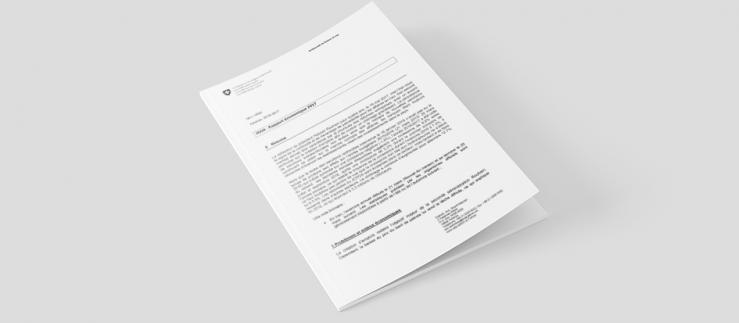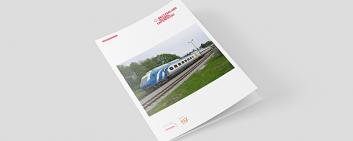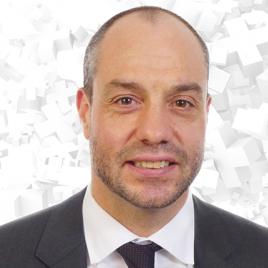Why is Iran an interesting export market for your products?
Rainer Klass, sales manager, IMD AG: the market offers relatively good prospects for our products in the medium term. We see similar development potential in the long term to that of Turkey or the Middle East. We have attained very good market positions there. Our basic goal is to further deepen and expand already-existing business relations in Iran and to show a strong presence from the very outset now that sanctions have been lifted.
Patrick Hettrich, sales manager, Max Zeller Söhne AG: Zeller is the leading supplier of herbal medicinal products in Switzerland. And Iran has a long tradition in the herbal medicinal products sector. Zeller exports its products to more than 25 countries including Japan, Korea and Mexico. Iran fits into our country profile very well.
Marco Birrer, sales director, Medela AG: with a population as large as Germany, Iran offers us access to a young, modern and well-educated generation that needs our products. We have already had a partnership with a local company in Teheran for many years. For us it is important to now give this cooperation fresh impetus.
Heinz Umschlag, export manager, Räber AG: Iran is a market ready for a new start after the lifting of international sanctions. This became obvious to us from the increase in our contact with interested Iranian parties. The Iranian president Hassan Rouhani formulated it as follows in a public speech at the end of May 2016: “Creating an economic boom and jobs for the youth is the top priority of the country and the prime goal of the government.”And in this connection emphasized: “…by striving to rebuild links with the international community.” For international business, the traffic lights in Iran have changed to “green”.
Franziska Hoffmann, sales director, Gastros Switzerland AG: Iran is not yet an interesting export market for us, but we hope it will continue to develop in this direction. In view of the changes in terms of sanctions, we are anticipating that larger, international hotel chains will soon open hotels in Iran and that demand will rise for our products as a result.
In which SWISS Pavilion did you participate? Did you make any special preparations for it as compared with other trade fairs?
Rainer Klass, IMD: we also part in IranPlast. We had both general and individual advice discussions with S-GE in advance. The preparations for the trade fair were significantly reduced than at fairs where we have our own stand thanks to the organizational work by S-GE.
Patrick Hettrich, Zeller: it was the first time that Zeller participated in a SWISS Pavilion. The preparations were comparable to those for any other fair.
Marco Birrer, Medela: we participated in the SWISS Pavilion at Iran Health 2016. It was a new, but good experience for us. And our organizational input was reduced to a minimum. We normally take part in other trade fairs with a stand of our own or via a local distribution partner. As this was our first participation in Iran Health, we decided in favor of cooperation with S-GE.
Heinz Umschlag, Räber: we took part in Iran Food + Hospitality. I attended the advance event “Export Dialog Iran” organized by S-GE and IHZ that was held in Lucerne on 17. March. The basic idea and prospects sounded very optimistic. Our attention was drawn to bank transactions as weak point, but practical suggestions were also made in this respect.
Franziska Hoffmann, Gastros: we participated in Iran Food & Hospitality. Apart from visa-related work, the preparations were the same as for other fairs.
What was your experience of the trade fair? Did you make any highly promising contacts?
Rainer Klass, IMD: our experience with the organization and support by S-GE was very positive. The infrastructure at the trade fair must be further improved by the organizer, however. It does not yet meet international trade fair standards. Our experience with the local support by the Iranian-Swiss Chamber of Commerce during the fair was good. We had highly promising and numerous contacts at the trade fair, in part with visitors at a high level. And some five contacts with whom serious business relations could develop.
Patrick Hettrich, Zeller: Zeller’s experience at the trade fair was very good. We were able to make many contacts, about five of which are very promising. The employees at the Iranian-Swiss Chamber of Commerce helped Zeller a lot.
Marco Birrer, Medela: we had the opportunity of making contact with potential intermediaries and consumers and familiarize them with our brand. The trade fair in general, and the SWISS Pavilion and the Medela stand in particular were well frequented on all days.
Heinz Umschlag, Räber: at the trade fair as well as in a private context, I noticed the great interest many people had in we Europeans and in our products. There are mainly domestic goods on the supermarket shelves. In fact, there are major, international branded products – but only to a very limited extent. The “hunger” for variety in the food offer seems to be very large. But it cannot be satisfied everywhere by any means. At the counter for unwrapped cheese at the supermarket of the luxury shopping center “Palladium”, there was no cheese from Switzerland, for example. The interest in the trade fair was enormously high. We had many business discussions. The most promising addresses best suited to direct import are currently being processed. The new experience we had was that it was noticeable how many interested parties proposed joint ventures. Avoidance of the allegedly high import duties was one of the advantages mentioned.
Franziska Hoffmann, Gastros: unfortunately the visitors were mainly private persons. One can sense that private consumers are on the lookout for business opportunities and are curious to see what products there are abroad. There were hardly any good contacts among them, unfortunately.
What are your next steps?
Rainer Klass, IMD: we expect to receive various inquiries. After we have drawn up offers, visits to customers are planned on site possibly at short notice.
Patrick Hettrich, Zeller: the contacts made at the fair will be deepened and then sorted through so that ultimately one to two partners for Iran can be determined.
Marco Birrer, Medela: intensification of the cooperation with our local partner is planned. This depends however on the further development of framework conditions.
Heinz Umschlag, Räber: the contacts we consider to be most important are currently being intensified.
Franziska Hoffmann, Gastros: we found a good manufacturer and distributor and are still in contact with him.
If a business relationship develops out of this, how will you deal with international payments?
Rainer Klass, IMD: we have not yet decided on this. We are awaiting specific proposals from the customers. It is absolutely essential that bank transactions can move freely and European banks reactivate their business relations otherwise it will be very difficult.
Patrick Hettrich, Zeller: we have not addressed this subject yet.
Heinz Umschlag, Räber: we will clarify this individually. It depends on our choice of importer. S-GE also made a recommendation on this recently.
Franziska Hoffmann, Gastros: no decision has been made on this yet. As the distributor mentioned already cooperates with other companies from Europe, he will know a way.
Are there other hurdles or obstacles, and how will you deal with these?
Rainer Klass, IMD: it is hard to say at the moment. We are anticipating a few more challenges down the road, however; any other estimation would be unrealistic.
Patrick Hettrich, Zeller: the licensing of Zeller products in Iran is complicated. We are cooperating closely with our partners on this.
Marco Birrer, Medela: in order to comply with the US embargo that is still in effect, we will not send products to Iran originating from the US or with components originating from there.
Heinz Umschlag, Räber: the hurdles include the value of the Swiss franc that is still too high, the high production costs in Switzerland and consequently the relatively high price of exports and (we have not been able to check this thoroughl,y however) the high import duties in Iran. The consumer prices for foodstuffs produced in Iran are very low compared to those in Switzerland. Our products are thus classed as luxuries.
Franziska Hoffmann, Gastros: the low incomes in Iran. Our products tend to be in the high-price segment. However, investors who build hotels have the necessary money as a rule. In general, our products and induction technology are still largely unknown in the Iranian market. What is needed here is good and close cooperation with a distributor to spread the necessary knowledge. But in this respect as well, hotel chains will help. They already know the products and will ask specifically for them.
The companies
Trade Fair Outlook Iran
Switzerland Global Enterprise will be participating in the following trade fairs in Teheran (Iran) with a SWISS Pavilion in 2017:
-
Iran Health, May 15-18, 2017
-
Iran food & bevtec, May 22-25, 2017
-
Iran food & hospitality, May 22-25, 2017
-
Iranplast, September 25-29, 2017







